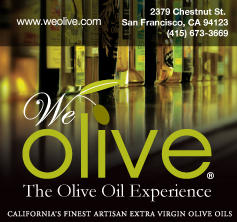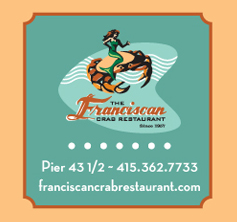
San Francisco is a city on the brink of financial disaster with a broken, bloated pension system, families leaving in droves due to high unemployment in a stagnant economy, and a deep need to rein in wasteful spending at City Hall. In his 10 months as interim mayor, Ed Lee has made great headway on some important issues and demonstrated not only an ability to lead but also a knack for bringing disparate groups together and getting the job done.
Lee brought a subtle, no-nonsense approach to balancing the budget (a painfully cantankerous process throughout the tenure of his predecessor, Gavin Newsom) eliciting a standing ovation from the Board of Supervisors; he worked hard to implement the mid-Market Street clean-up and tax benefit district, which will keep high-tech firms and their thousands of employees from relocating to more business friendly cities; and he was a key negotiator in bringing city management, unions and business leaders together on a compromise for pension reform with Proposition C. He also made two smart, thoughtful appointments by selecting Greg Suhr for police chief and Ed Reiskin to head Muni.
Lee, a former civil rights attorney, has worked as a civil servant in San Francisco since 1989, starting as the investigator for the city’s Whistle Blower Ordinance. He went on to serve as executive director of the Human Rights Commission, director of city purchasing, and director of the Department of Public Works. He was appointed as city administrator in 2005 and again in 2010, where he quietly led the way on government efficiency and reforms including consolidating departments and reducing the city fleet as well as moving toward greener, more efficient electric vehicles (Lee put his money where his mouth is, ditching the mayoral limo for a hybrid Chevy Volt). He also developed and oversaw implementation of San Francisco’s first ever Ten Year Capital Plan to prioritize spending and infrastructure investment.
It is this versatility, knowledge and experience along with a refreshing lack of career politician rhetoric that makes Lee the best choice to continue the job he started. Lee has also shown class and grace leading up to the election as his campaign opponents levied a slew of vicious, misleading attacks; Lee took the high road, speaking about what he can do as mayor rather than what his opponents can’t.
THE COMPETITION
While we feel Dennis Herrera, who has served San Francisco well as city attorney, has a lot to offer in the way of management skills and a deep knowledge of the city’s inner workings, we liked him better before he became the ringleader of the attacks against Lee’s ethics. His bashing of Lee on “disclosure and transparency” only served to remind us of the controversy surrounding his former campaign manager, Alex Tourk, who allegedly lobbied Herrera for his other clients, a clear ethics violation; those clients also made donations to Herrera’s mayoral campaign. To avoid “further conflict,” Herrera shipped the Tourk investigation to Oakland, where certainly he knew the current city attorney was just weeks away from leaving. Consequently the investigation has fallen into a black hole, just where Herrera wanted it during his run for mayor. Instead of wasting thousands of dollars on television commercials and mailers to deride Lee, we wish Herrera had spent that money more wisely – like pointing out the reasons we should elect him as mayor.
David Chiu, president of the Board of Supervisors, has shown some strong leadership abilities working on revitalization projects like the Hunters Point Shipyard and as a champion of affordable housing and budget reform. But he’s held his seat as a supervisor for less than two years, and his lack of experience is a concern during this crucial time in San Francisco’s history.
Joanna Rees has some great ideas regarding fiscal responsibility, but being a venture capitalist is a far cry from being mayor of a large metropolis. She lacks the necessary political chops that her opponents possess.
We give Jeff Adachi, San Francisco’s highly respected public defender, all the credit in the world for bringing much-needed attention to the pension reform issue a year ago with Proposition B; however, with his current ballot measure Proposition D polarizing numerous groups, we have our doubts about his ability to bring everyone together for the common good on important issues. We had enough of that during Newsom’s reign.

While current District Attorney George Gascón’s opponents have been hammering him for being a long-time law enforcement officer and police chief rather than using his law degree to practice in court, the state’s planned prison “realignment” – where counties will have to find room in their jails for thousands of “low risk” inmates who would have previously gone to state prison – makes him uniquely qualified for the tasks at hand. Gascón took over as interim district attorney last January when Kamala Harris became California’s attorney general and immediately began working on a plan to ease the implementation of realignment.
In the late 1990s when Los Angeles was reeling from accusations of police misconduct, Gascón was selected to lead ethics reform within the organization while commanding over 8,000 sworn officers and civilians at the Los Angeles Police Department. When there was a rise in daytime crime, Gascón went door-to-door in South Central Los Angeles talking to parents of truant children involved in those crimes. Consequently school attendance went up and daytime crime went down. As chief of police in Mesa, Ariz., Gascón stood up against the right-wing establishment’s anti-immigration movement and protected the rights of anti-Proposition 8 protestors.
For 18 months prior to his District Attorney appointment, Gascón gained respect as San Francisco’s police chief. After he took over as top cop in 2009, the city saw a significant drop in crime. According to the Department of Justice, San Francisco cleared only 17 percent of its homicides in 2008; under Gascón in 2009, that rate rose to over 71 percent.
As district attorney, Gascón has implemented forward-thinking programs like Neighborhood Courts to deal with the nonviolent misdemeanor cases clogging the dockets at the Hall of Justice. He has stepped up prosecution of violent crimes and protection of crime victims. Because of his unique qualifications, Gascón has built relationships within both the district attorney’s office and the police department, which will be crucial to the success of the impending realignment. He has the experience of managing large departments, making policy and personnel decisions, and has what it takes to bring reform to the district attorney’s office, which was left in shambles by his weak-on-crime-and-procedure predecessor, Kamala Harris.
As with Ed Lee, we like that Gascón has risen above a slew of negative campaign rhetoric by his opponents, sticking to a message of what he can do – not what they can’t.
THE COMPETITION
Attorney Bill Fazio has run for District Attorney three previous times without success, and we don’t find him any more compelling the fourth time around. We like David Onek, but his lack of experience won’t work in a city facing major challenges like realignment. We also like Sharmin Bock, a no-nonsense 22-year prosecutor for Alameda County, but she lacks the necessary relationships and experience within San Francisco’s complex political system to lead the District Attorney’s office. She’s also produced the most negative campaign material against Gascón, and her numbers don’t always add up. In her television ads and in her mailers, Bock states that San Francisco has 1,000 unsolved homicides. In reality, 415 homicides remain unresolved over the past decade (in Alameda County, where Bock works, there are 818).
SHERIFF: CHRIS CUNNIE
With popular Sheriff Michael Hennessy retiring after three decades, San Francisco must elect someone to run the county jail system as it faces the monstrous challenges presented by realignment. We think Chris Cunnie is the best man for the job. He worked as a police officer for nearly two decades, later serving as the head of the San Francisco Police Officers Association. He also served as chief district attorney investigator and, most important, as undersheriff, Hennessy’s second in command.
Cunnie was also a top executive at Walden House, San Francisco’s renowned drug treatment center, which will be key when dealing with the influx of new inmates due to realignment, many of whom have substance abuse problems.
THE COMPETITION
As captain of the sheriff’s department, Paul Miyamoto certainly understands what the job entails, but his resume lags far behind Cunnie’s, and he lacks the leadership skills and high-level experience that will be critical in dealing with realignment.
Ross Mirkarimi has never managed a major department and has zero experience dealing with jails. As District 5 supervisor, he has been mostly silent and largely absent as the Haight-Ashbury turned into a war zone run by violent thugs (he also opposed the Sit-Lie Law) and the Western Addition, also under his watch, remained a potent cocktail of drug dealing, drive-by shootings, and other serious crimes. Compassion is important, but Mirkarimi is a well-documented bleeding heart liberal – and that’s not what we need for sheriff.
PROPOSITION C: YES
As we wrote one year ago just prior to Proposition B going down to defeat, San Francisco urgently needs pension reform. Voters were confused by the rhetoric presented in the mailers featuring big-eyed single moms holding their equally big-eyed children with verbiage like, “Prop B will take away our health care.” In reality, powerful labor unions paid big bucks for those misleading advertisements – and San Francisco remains on a collision course with insolvency.
More than one third of San Francisco’s nearly 30,000 city employees make over $100,000 per year and receive generous benefits and pension plans worth tens of thousands of dollars more. Meanwhile pension costs have tripled in the past decade to over $350 million, and retirement health care costs have gone up five times to nearly $160 million. The city’s unfunded pension and retirement health care liabilities combined are over $8 billion. The general fund is forced to pick up the tab, which means less money for police and fire protection, transit and social services. It also puts citizens, who ultimately pay for all of this, at risk of higher taxation and more ridiculous fees and fines (for example, a ticket for parking outside the marked lines at a meter is now $50).
Neither of the two measures on the Nov. 8 ballot, Proposition C and Proposition D, will solve our impending pension implosion, but Prop C has the best chance of passing because it was forged via collaboration between the mayor, the Board of Supervisors, labor unions, and business leaders. Unlike Prop D, it requires all employees to contribute to their retirement health care and shifts the power on the Health Service Board that oversees those plans from labor to city administrators, with the added requirement that a financial expert sit on the board – two changes that will likely help keep down costs.
Prop D is reviled by labor leaders and, because it requires increased employee contributions without providing offsetting benefits, they could potentially keep it tied up in court for years.
While we see Prop C as baby steps and hardly adequate in the long run, it will at least get the ball rolling toward pension reform, which is why we are endorsing Prop C.
Confused by ranked-choice voting? Here’s how it works
E-mail: susan@northsidesf.com








